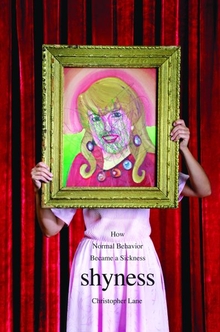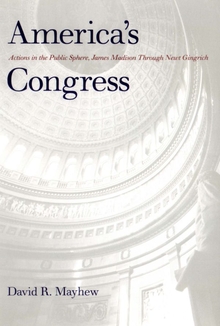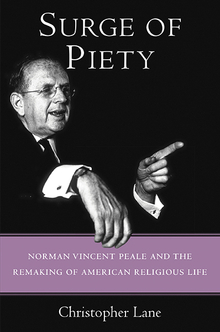Shyness
WARNING
You are viewing an older version of the Yalebooks website. Please visit out new website with more updated information and a better user experience: https://www.yalebooks.com
How Normal Behavior Became a Sickness
Christopher Lane
How a handful of psychiatrists, with the help of the pharmaceutical industry, turned the ordinary emotion of shyness into an illness
In the 1970s, a small group of leading psychiatrists met behind closed doors and literally rewrote the book on their profession. Revising and greatly expanding the Diagnostic and Statistical Manual of Mental Disorders (DSM for short), they turned what had been a thin, spiral-bound handbook into a hefty tome. Almost overnight the number of diagnoses exploded. The result was a windfall for the pharmaceutical industry and a massive conflict of interest for psychiatry at large. This spellbinding book is the first behind-the-scenes account of what really happened and why.
With unprecedented access to the American Psychiatric Association archives and previously classified memos from drug company executives, Christopher Lane unearths the disturbing truth: with little scientific justification and sometimes hilariously improbable rationales, hundreds of conditions—among them shyness—are now defined as psychiatric disorders and considered treatable with drugs. Lane shows how long-standing disagreements within the profession set the stage for these changes, and he assesses who has gained and what’s been lost in the process of medicalizing emotions. With dry wit, he demolishes the façade of objective research behind which the revolution in psychiatry has hidden. He finds a profession riddled with backbiting and jockeying, and even more troubling, a profession increasingly beholden to its corporate sponsors.
Christopher Lane is the Pearce Miller Research Professor, Northwestern University, and the recent recipient of a Guggenheim fellowship to study psychopharmacology and ethics.
Read Christopher Lane's recent op-ed contribution to the New York Times, "Shy on Drugs."
"This is not only an important account of the creation of a modern disease and its treatment, it is an explosive indictment of a system that is too simply materialist in both philosophy and behavior."—Harold J. Cook, Wellcome Trust Centre for the History of Medicine at UCL
Harvard University
"In Shyness,
Christopher Lane outlines an apparatus that is one of the most powerful cultural forces in the world today. In pulling back the drapes and revealing the bumbling and hamfistedness of the new engineers of human souls, Chris Lane might help restore sanity to Oz."—David Healy, M.D., author of Let Them Eat Prozac and The Antidepressant Era
"Written with Chris Lane's brand of verve and scholarship, Shyness is a riveting book about how certain so-called illnesses are complex cultural artifacts and certain so-called doctors are casting spells called diagnoses. A smart and bracing book about shyness—not to mention a shrewd and subtle book about psychiatric classification—is long overdue; after reading Shyness it is clear that only Lane could have written it."—Adam Phillips, psychoanalyst, author of Side-Effects
"An important new book. . . . The achievement of Shyness is to chart for the first time the events preceding the rise and fall of the SSRIs. Lane has marshalled a cache of unpublished data to explain the academic framework that allowed the rise to happen. [He] tells the complex story with impressive clarity. . . . Lane has done a valuable job in tracing the roots of the current crisis and he certainly isn’t calling for a reinstatement of Freudianism; what is needed now is another map to indicate a way out."—Jerome Burne, Times Literary Supplement
"As Lane’s research reveals, the cost of blaming anxieties on brain chemistry imbalance goes beyond dollars, to drug dependency, debilitating side effects and consumers convinced they’re hamstrung by their physiology."—Robin Tierney, San Francisco Examiner
"Lane charges that the task force, dominated by neuropsychiatrists, often used bad science or no science at all, that it turned ordinary human emotions into diseases and that it created a climate in which pharmaceutical companies could get rich creating cures for often nonexistent complexes."—Richard Hicks, Atlanta Journal-Constitution (op-ed)
"Christopher Lane . . . calls psychiatry's growing focus on children 'the perfect storm' for overdiagnosis. 'You've got a constituency—children—who cannot make informed medical decisions for themselves,' Lane says. In a fast-moving culture that heaps stress and high expectations on children, 'parents are in many cases under great pressure to ensure their child succeeds and is socially proficient. A child that doesn't negotiate rapidly those hurdles can look very quickly as if he or she is falling behind, or displaying behavior that warrants medical concern.'"—Melissa Healy, Los Angeles Times
"Lane argues in this well-researched . . . controversial book that shyness [has been] pathologized, to the detriment, especially, of children and teenagers."—Elsa Dixler, New York Times Book Review (Paperback Row)
Publication Date: December 2, 2008
30 b/w illus.










